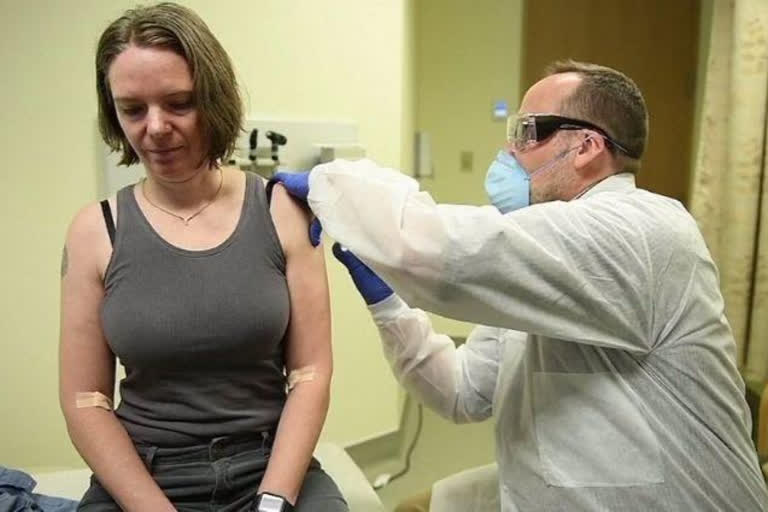New York:Health care workers and nursing home residents should be at the front of the line when the first coronavirus vaccine shots become available, an influential government advisory panel said Tuesday.
The panel voted 13-1 to recommend those groups get priority in the first days of any coming vaccination program when doses are expected to be very limited. The two groups encompass about 24 million people out of a U.S. population of about 330 million.
Later this month, the Food and Drug Administration will consider authorizing emergency use of two vaccines made by Pfizer and Moderna. Current estimates project that no more than 20 million doses of each vaccine will be available by the end of 2020. And each product requires two doses. As a result, the shots will be rationed in the early stages.
Tuesday’s action merely designated who should get shots first if a safe and effective vaccine becomes available. The panel did not endorse any particular vaccine. Panel members are waiting to hear the FDA’s evaluation and to see more safety and efficacy data before endorsing any particular product.
Read:|UK authorises Pfizer-BioNTech COVID vaccine
Experts say the vaccine will probably not become widely available in the U.S. until the spring.
The panel of outside scientific experts, created in 1964, makes recommendations to the director of the Centers for Disease Control and Prevention, who almost always approves them. It normally has 15 voting members, but one seat is vacant.
The recommendations are not binding, but for decades they have been widely heeded by doctors, and they have determined the scope and funding of U.S. vaccination programs.
It will be up to state authorities whether to follow the guidance. It will also be left to them to make further, more detailed decisions if necessary — for example, whether to put emergency room doctors and nurses ahead of other health care workers if vaccine supplies are low.
The outbreak in the U.S. has killed nearly 270,000 people and caused more than 13.5 million confirmed infections, with deaths, hospitalizations and cases rocketing in recent weeks.
As the virtual meeting got underway, panel member Dr Beth Bell of the University of Washington noted that on average, one person is dying of COVID-19 per minute in the U.S. right now, “so I guess we are acting none too soon.”
About 3 million people are living in nursing homes, long-term chronic care hospitals, and other U.S. long-term care facilities. Those patients and the staff members who care for them have accounted for 6% of the nation’s coronavirus cases and a staggering 39% of the deaths, CDC officials say.
Despite the heavy toll, some board members at Tuesday’s meeting said they hesitated to include such patients in the first group getting shots.
Dr Helen Keipp Talbot, an infectious diseases researcher at Vanderbilt University who was the lone committee member to vote against the proposal, cited flu research that found vaccinating the staff of such facilities has the greatest impact on preventing its spread there.
Dr Richard Zimmerman, a University of Pittsburgh flu vaccine researcher who watched the meeting online, echoed Talbot’s concerns.
Read:|European regulator to decide Dec. 29 on 1st virus vaccine
“I think it was premature” to include nursing home residents as a priority group, said Zimmerman, a former ACIP member. “Their vote seems to assume that these people will respond well to the vaccine. ... I don’t think we know that.”
